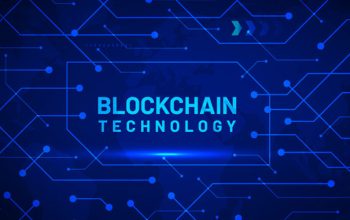The world is witnessing an exponential growth in the volume of data generated by Internet of Things (IoT) devices. These devices, ranging from sensors and wearables to smart appliances and industrial equipment, generate vast amounts of data every second. However, managing, storing, and securely exchanging this data poses significant challenges. That’s where blockchain technology comes into play, offering innovative solutions for IoT data marketplaces.
Introduction
In today’s interconnected world, IoT has become ubiquitous, enabling devices to collect and share data seamlessly. However, the centralized nature of data storage and exchange in traditional IoT architectures raises concerns regarding security, privacy, and trust. Blockchain, originally developed as the underlying technology for cryptocurrencies like Bitcoin, has emerged as a game-changer in addressing these challenges.
Challenges in IOT Data Marketplaces
- Data Security and Privacy:
- Securing sensitive data collected by IoT devices.
- Protecting data during storage, transmission, and processing.
- Addressing potential vulnerabilities and risks of data breaches.
- Complying with data protection regulations and ensuring user privacy.
- Data Interoperability:
- Integrating and exchanging data across diverse IoT devices and platforms.
- Dealing with variations in data formats, protocols, and standards.
- Ensuring seamless communication and interoperability between different systems.
- Overcoming compatibility issues between legacy and emerging technologies.
- Trust and Transparency:
- Establishing trust in data exchanges between multiple parties.
- Reducing reliance on centralized authorities and intermediaries.
- Ensuring data integrity and authenticity throughout the data lifecycle.
- Providing transparent and auditable records of data transactions.
- Scalability and Performance:
- Handling the massive volume of data generated by IoT devices.
- Processing and analyzing data in real-time or near real-time.
- Scaling infrastructure and systems to accommodate increasing data demands.
- Ensuring efficient and reliable performance of IoT data marketplaces.
- Governance and Regulatory Compliance:
- Establishing governance models for decentralized data marketplaces.
- Adhering to industry standards and regulations governing data sharing and privacy.
- Addressing legal and compliance requirements across different jurisdictions.
- Ensuring responsible and ethical use of IoT data.
- Cost and Resource Management:
- Managing the costs associated with data storage, processing, and transmission.
- Optimizing resource allocation and utilization in IoT data marketplaces.
- Balancing the trade-off between data quality and resource constraints.
- Identifying cost-effective solutions for data management and analytics.
Addressing these challenges requires a comprehensive approach that combines technological advancements, industry collaborations, and regulatory frameworks. Blockchain-based solutions offer potential remedies by providing secure, decentralized, and transparent platforms for IoT data marketplaces.
How Blockchain Solves the Challenges
Blockchain technology offers a decentralized and distributed approach to data management, mitigating the challenges faced by IoT data marketplaces. By using a shared ledger and cryptographic techniques, blockchain ensures the integrity and authenticity of data. It provides an immutable record of transactions, making it highly secure and resistant to tampering. Smart contracts, self-executing agreements embedded in blockchain, automate processes and enable trust between parties.
Use Cases of Blockchain in IoT Data Marketplaces

The potential applications of blockchain in IoT data marketplaces are vast. In supply chain management, blockchain can ensure end-to-end traceability and transparency by recording every transaction and movement of goods. Energy trading can leverage blockchain to enable peer-to-peer energy transactions, reducing costs and promoting renewable energy sources. Healthcare data sharing can be made secure and privacy-preserving, empowering patients and healthcare providers alike.
Autonomous vehicles can benefit from blockchain-based solutions by securely exchanging data related to traffic conditions, vehicle performance, and more. Environmental monitoring can be enhanced by utilizing blockchain to ensure the integrity and accuracy of data collected by sensors, enabling effective analysis and decision-making.
Benefits of Blockchain-based IoT Data Marketplaces
Implementing blockchain in IoT data marketplaces offers numerous benefits. Firstly, it significantly enhances data security and privacy. The decentralized nature of blockchain eliminates single points of failure, making it harder for malicious actors to compromise data. Moreover, the transparent and immutable nature of the blockchain ensures trust among participants, enabling seamless data sharing and collaboration. This, in turn, leads to improved operational efficiency, reduced costs, and new revenue streams through data monetization.
Implementing Blockchain in IoT Data Marketplaces
Implementing blockchain in IoT data marketplaces requires careful consideration of technical aspects and challenges. Scalability and performance are critical concerns, as the volume of data generated by IoT devices can be overwhelming. Interoperability with existing systems and standards is another challenge that needs to be addressed to ensure smooth integration. Furthermore, integration with IoT devices and networks requires robust protocols and secure communication channels.
Future Outlook and Adoption Trends
The adoption of blockchain-based solutions for IoT data marketplaces is on the rise. Numerous industries recognize the potential of blockchain in addressing the challenges associated with IoT data management. Collaborations and partnerships are being formed between technology companies, IoT device manufacturers, and data marketplaces to explore innovative use cases and drive adoption. However, regulatory and legal frameworks are still evolving, and standardization efforts are underway to ensure interoperability and compatibility across platforms.
Technical Considerations and Challenges in Implementing Blockchain in IoT Data Marketplaces
Implementing blockchain in IoT data marketplaces involves various technical considerations and challenges. While blockchain technology offers many advantages, it’s important to address these aspects to ensure successful integration.
Scalability and Performance Issues
One of the key challenges is scalability. IoT devices generate enormous amounts of data, and traditional blockchain architectures may struggle to handle the high transaction volume. As the number of participants and transactions increases, the blockchain network may experience bottlenecks and slower transaction processing times. To overcome this challenge, solutions like sharding, sidechains, and off-chain transactions are being explored. These approaches aim to distribute the workload and increase the network’s capacity to handle the growing volume of IoT data.
Interoperability with Existing Systems
Another challenge is interoperability with existing systems. IoT data marketplaces often involve multiple platforms, protocols, and standards. Ensuring seamless integration between blockchain and existing infrastructure can be complex. Efforts are being made to develop common data formats, communication protocols, and interoperability standards to facilitate the smooth exchange of data between IoT devices, data marketplaces, and blockchain networks.
Integration with IoT Devices and Networks
Integrating blockchain with IoT devices and networks requires careful consideration. IoT devices often have limited computational resources and storage capacity. Optimizing the blockchain protocols to work efficiently with these resource-constrained devices is crucial. Additionally, secure communication channels and protocols need to be established to protect the integrity and confidentiality of data exchanged between IoT devices and the blockchain network.
Regulatory and Legal Implications
The adoption of blockchain in IoT data marketplaces also raises regulatory and legal considerations. The use of blockchain technology for storing and sharing sensitive data may fall under data protection regulations, such as the General Data Protection Regulation (GDPR). Compliance with these regulations is essential to protect user privacy and ensure the lawful handling of data. Additionally, regulatory frameworks governing blockchain and cryptocurrencies may vary across different jurisdictions, and navigating these legal complexities requires careful attention.
Future Outlook and Adoption Trends
The future outlook for blockchain-based solutions in IoT data marketplaces is promising. The technology continues to evolve, addressing the challenges and limitations it currently faces. As blockchain becomes more scalable, interoperable, and user-friendly, its adoption in IoT data marketplaces is expected to increase.
There is a growing interest among industries in leveraging blockchain for IoT data management. Companies across sectors such as supply chain, energy, healthcare, and transportation are exploring and implementing blockchain-based solutions. Collaborations and partnerships are being forged between technology providers, IoT device manufacturers, and data marketplaces to drive innovation and create robust ecosystems.
As the technology matures, regulatory and legal frameworks are likely to adapt to accommodate blockchain-based IoT data marketplaces. Standardization efforts are underway to establish common protocols and interoperability standards. These developments will foster trust, facilitate data exchange, and encourage broader adoption of blockchain in IoT data marketplaces.
Overall, the future holds immense potential for blockchain-based solutions in IoT data marketplaces. By addressing the challenges and capitalizing on the benefits, blockchain technology can revolutionize the way IoT data is managed, shared, and monetized.
Data Security and Privacy:
Data security and privacy are critical concerns in IoT data marketplaces. With IoT devices collecting vast amounts of sensitive information, such as personal, health, or industrial data, ensuring secure storage and transmission becomes paramount. The distributed and decentralized nature of blockchain technology can address these concerns by providing an immutable and tamper-proof ledger. By utilizing cryptographic techniques, blockchain enables data encryption and ensures that only authorized parties can access and modify the data. This enhances data security and minimizes the risk of unauthorized data breaches.
In addition to security, protecting user privacy is crucial in IoT data marketplaces. Blockchain’s decentralized approach allows individuals to have control over their own data, empowering them to decide who can access and use their information. Smart contracts on the blockchain can facilitate data-sharing agreements that are based on explicit user consent and privacy preferences. By leveraging blockchain’s transparent yet pseudonymous nature, individuals can retain their privacy while still participating in data marketplaces.
Data Interoperability:
Data interoperability is a significant challenge in IoT data marketplaces, given the diverse range of devices, protocols, and formats involved. Standardization efforts are essential to establish common data formats, communication protocols, and interoperability standards. Blockchain technology can facilitate interoperability by providing a unified framework for data exchange and storage. Smart contracts can act as intermediaries, translating data formats and ensuring compatibility between different systems. Moreover, blockchain’s decentralized nature can enable peer-to-peer data exchanges, bypassing the need for intermediaries and enabling direct communication between devices and platforms.
Blockchain’s ability to create shared ledgers and distributed networks also simplifies data integration. Instead of relying on centralized data silos, IoT data marketplaces can utilize blockchain as a common backbone, allowing seamless integration of data from multiple sources. This enhances the efficiency and accuracy of data analysis, enabling better insights and decision-making.
Trust and Transparency:
Establishing trust and transparency in IoT data marketplaces is crucial for fostering collaboration and ensuring fair data exchange. Traditional centralized approaches may suffer from a lack of transparency and a reliance on centralized authorities. Blockchain technology addresses these concerns by providing a transparent and immutable ledger that records all transactions and data exchanges.
Through blockchain, participants in IoT data marketplaces can verify the origin and integrity of data, ensuring trustworthiness and preventing data tampering. The decentralized nature of blockchain eliminates the need for intermediaries, reducing the potential for data manipulation or unauthorized access. Smart contracts, embedded within the blockchain, provide automated and transparent execution of agreements, ensuring that all parties adhere to predefined rules and conditions.
By leveraging blockchain’s trust and transparency, IoT data marketplaces can foster collaboration, facilitate data sharing, and enable new business models based on secure and auditable data transactions.
Scalability and Performance:
Scalability and performance are significant challenges in handling the vast volume of data generated by IoT devices in real-time or near real-time. Traditional blockchain networks, such as public blockchains, may face scalability limitations due to the computational and storage requirements of processing a large number of transactions.
To address this challenge, various scaling solutions are being explored. Sharding, for instance, involves dividing the blockchain network into smaller, more manageable pieces called shards, each capable of processing a subset of transactions. Layer-2 protocols, such as state channels and sidechains, allow transactions to be conducted off the main blockchain, reducing the burden on the primary network. These solutions aim to increase transaction throughput and improve overall network performance, enabling blockchain to handle the scalability requirements of IoT data marketplaces.
Conclusion
Blockchain-based solutions offer a promising path for addressing the challenges faced by IoT data marketplaces. The combination of blockchain’s security, transparency, and automation capabilities can revolutionize the way IoT data is managed and shared. As industries continue to embrace IoT and recognize the value of data, blockchain technology will play a crucial role in unlocking the full potential of IoT data marketplaces.
Pranav is a tech, crypto & blockchain writer based in London. He has been following the development of blockchain technology for several years.




